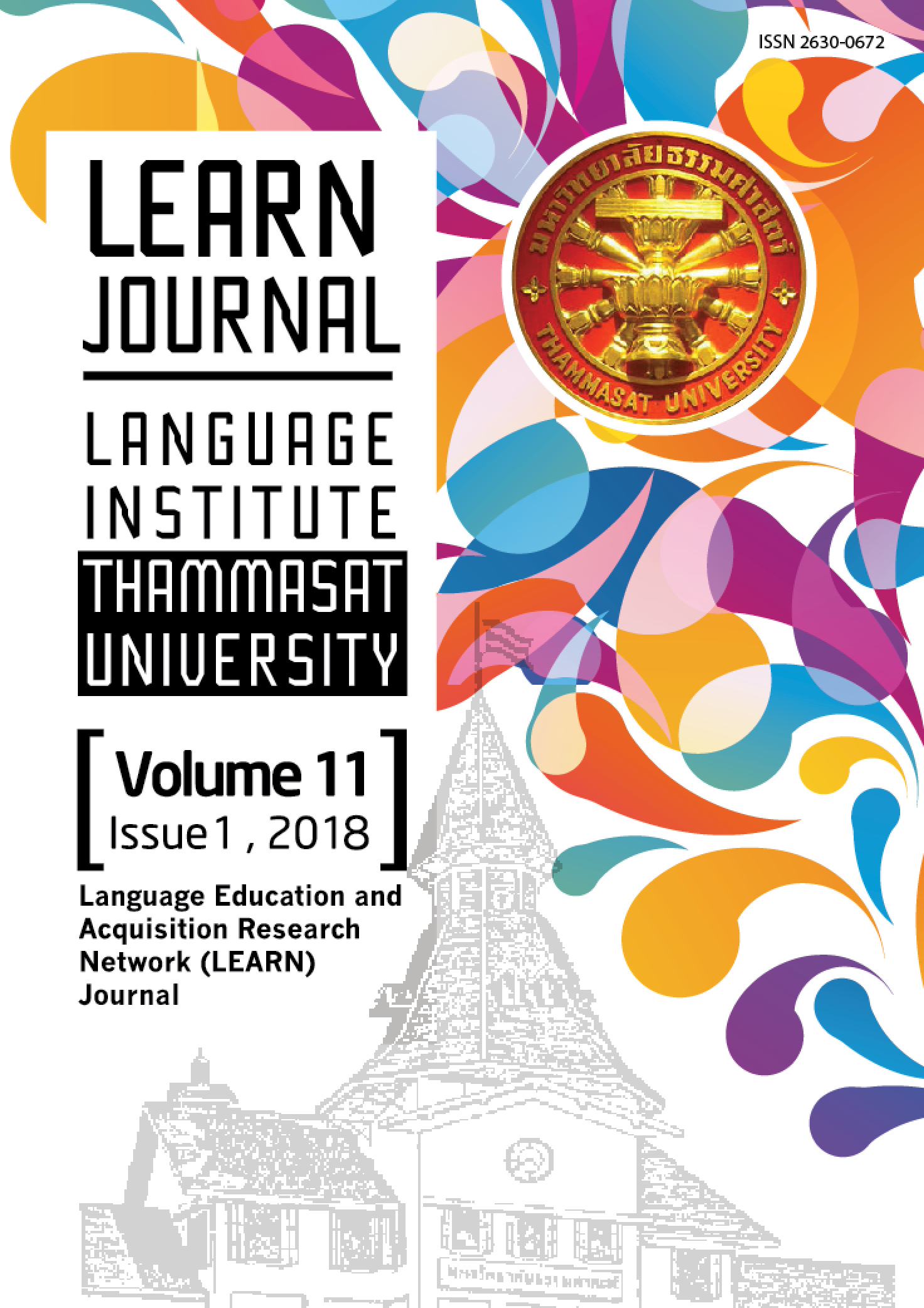The Use of International Business Management Collocations by Thai EFL Speakers
Main Article Content
Abstract
Although there has been a plethora of collocation research, little attention has been placed on collocations in the field of International Business Management (IBM). Employing the notion of interlanguage variation, this study aims to investigate what collocations in the IBM field are difficult for Thai learners to produce and to determine their pattern of IBM collocational use. This study also examines whether proficiency and different test types significantly affect learners’ use of IBM collocations. Under investigation, target collocations included adjective-noun and noun-noun collocations relevant to IBM. Sixty Thai university students divided into advanced and upper intermediate groups were asked to participate in the study. Sources of data stemmed from two types of test materials: collocation judgement tests where the participants were requested to decide whether a group of words was a collocation and fill-in-blank tests where they were required to produce a collocate appropriate for a given situation. As demonstrated, only the advanced learners could acquire IBM noun-noun collocations in the fill-in-blank test with ease. Both groups of participants appeared to have employed the same pattern of IBM collocational use. The findings further portrayed that proficiency and the test materials administered to collect the data significantly interfered with the participants’ pattern of IBM collocational use. The results lend initial support to devising learning materials aligned with learners’ level of proficiency, first language knowledge, and familiarity with some collocates required for certain nodes in English language classrooms. Useful suggestions for further research are also provided.


